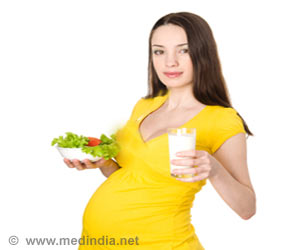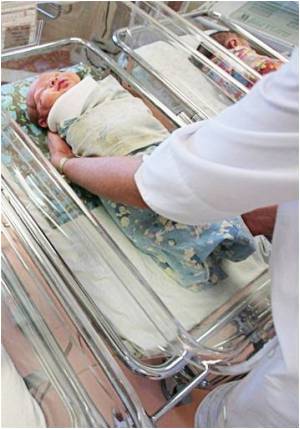Baby's gut microbiome could be influenced by mother's high-fat diet during pregnancy. The gut microbiome changes were present from birth to six weeks of age.

- Mother’s high-fat diet may have a lasting impact on babies gut microbiome
- Changes in the babies' gut microbiomes were present from birth to six weeks of age
- The changes in gut microbiome may affect the baby’s immune development
Mother’s High-Fat Diet and Baby’s Gut Health
A team of researchers from Baylor College of Medicine in the USA examined a cohort study involving 157 women and their newborns. The researchers found an association between the mother’s diet and the changes in their babies gut microbiome. These changes could affect energy extraction from food and early immune development.The researchers examined the stool samples of 157 infants that were taken at 24 and 48 hours post-delivery. A sub-sample of 75 babies were further studied, and their stool sample was analyzed at four to six weeks of age. The dietary habits of the mothers were assessed using the Dietary Screener Questionnaire that included 26 questions on the frequent consumption of foods and beverages in the last month of pregnancy.
The responses to the food frequency questionnaire were used to estimate the intake of added sugars, fat, and fiber during the latter part of the third trimester of pregnancy. The analysis showed that the mother’s dietary intake of calories from fat ranged from 14.0% to 55.2% per day. On an average, the daily intake of calories from fat was 33.1%. The Institute of Medicine in the USA recommends the daily fat intake between 20 and 35 percent.
The composition of bacteria present in the babies stool was analyzed using DNA-sequencing. The researchers found that a high-fat diet of the mothers was significantly associated with fewer numbers of Bacteroides microbes in the stool samples taken shortly after birth and at four to six weeks of age.
Bacteroides are key species of bacteria that break down and extract energy from certain carbohydrates. When the Bacteroides are depleted, carbohydrates become unusable to the infants. Persistent depletion of Bacteroides species in the infant’s gut could have significant consequences for energy extraction from food and immune development, said the researchers.
The findings of the study show that mother’s diet is related to her baby’s gut. The limitation of the study is that the total caloric intake of the mothers were not assessed.
Source-Medindia















